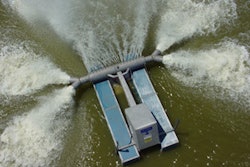WASHINGTON (AP) -- Manufacturers would have to equip large trucks and buses with safety systems that help prevent rollover accidents through computer-controlled braking, under new regulations proposed Wednesday by the government.
The National Highway Traffic Safety Administration's proposal would require electronic stability control in new trucks and buses, including motor coaches.
The safety system senses when a driver may lose control and automatically applies brakes to individual wheels to keep the vehicle stable and avoid a rollover. It helps motorists avoid skidding across icy or slick roads or keep control when swerving to avoid an unexpected object in the road. The individual-wheel braking counters over-steering and under-steering.
Government research shows the technology could prevent up to 56 percent of rollover crashes each year -- the deadliest among all crash types -- and another 14 percent of loss-of-control crashes.
NHTSA estimates that a standard requiring the safety systems on large trucks and large buses would prevent up to 2,329 crashes, eliminate an estimated 649 to 858 injuries, and prevent between 49 and 60 fatalities a year.
The safety systems are already required in passenger cars, sport utility vehicles and light trucks, beginning with the current model year. But safety systems have been available in all SUVs and many passenger cars for years.
"We've already seen how effective stability control can be at reducing rollovers in passenger vehicles," NHTSA Administrator David Strickland said. "Now, we're expanding our efforts to require stability enhancing technology on the many large trucks, motor coaches, and other large buses on our roadways."
David Champion, senior director of automotive testing for Consumer Reports, has called electronic stability control "the single most important advance in auto safety since the development of the seatbelt."






















